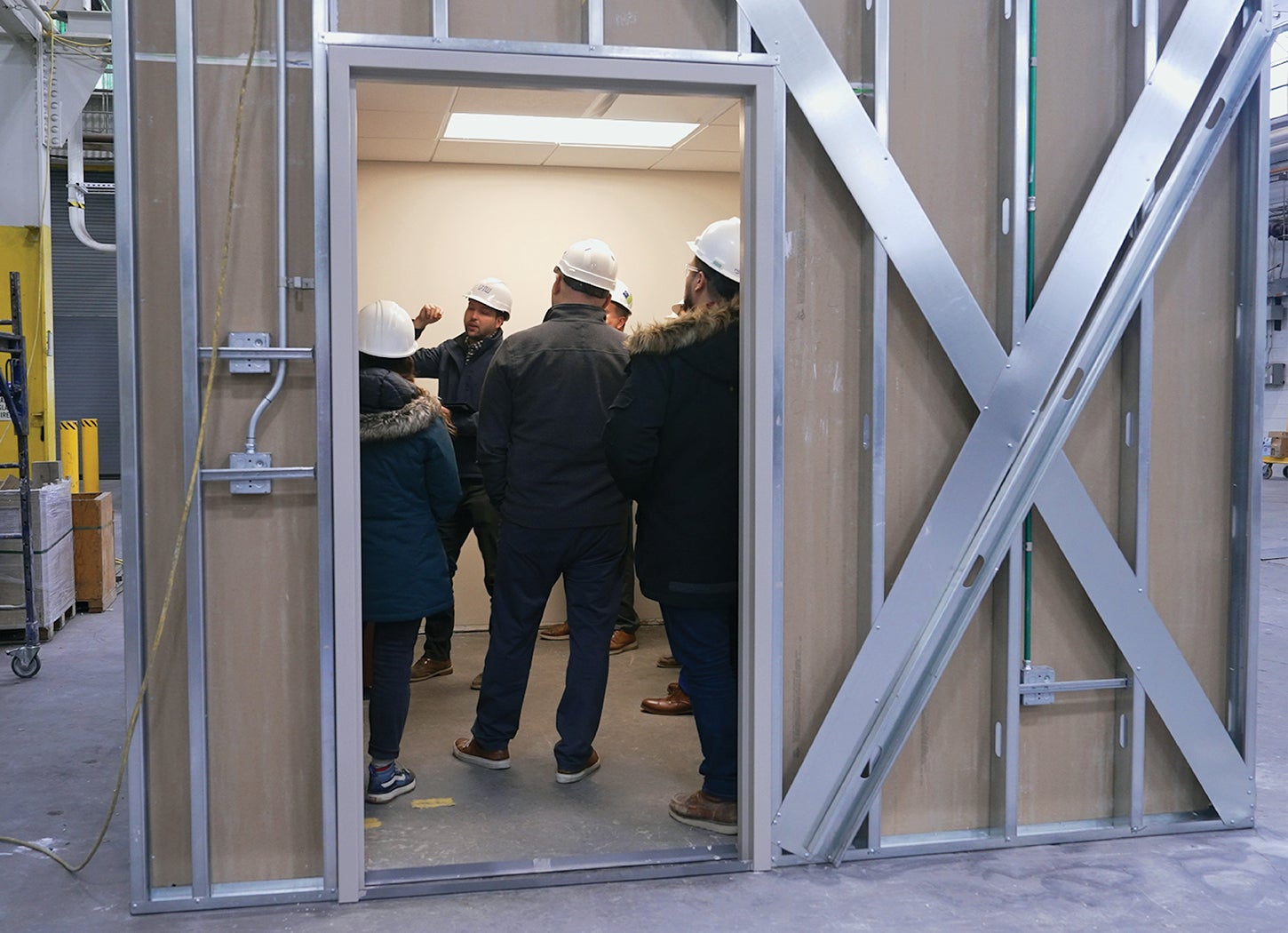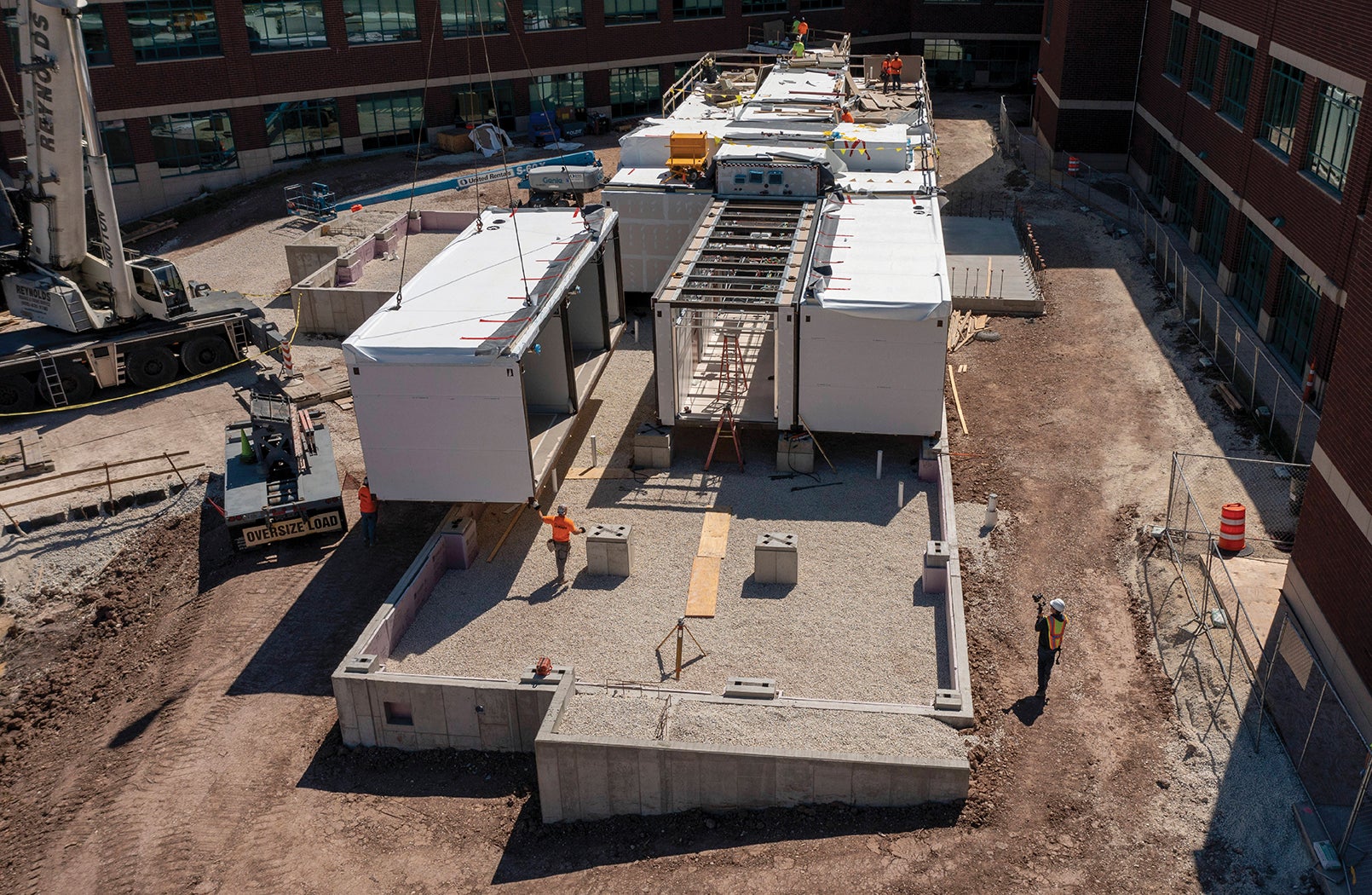Simplifying project logistics with the right planning
Prefabrication doesn’t just speed the installation process; it can streamline permitting and approvals, too.
“Both times we’ve done this now, the authorities having jurisdiction (AHJs) will send inspectors to the factory building to inspect these units a couple of times,” says Charles Cloutier, director of planning and construction at Northwestern Medicine in Chicago. “They don’t need to see every single modular unit. They can see that we are doing things the right way, and it’s repetitive. Once you build that level of comfort and trust, most municipalities are OK, but it’s something that we have to think about upfront.”
Overall, Cloutier has seen that modular construction can provide a range of logistics benefits. “There are fewer people on the job site when you’re building half of the interior of the building off-site,” he says. Having fewer people on-site makes it easier to manage security. And, Cloutier adds, “In an urban environment where parking is at a premium, not having all those folks on the job sites has been helpful.”
Northwestern is in the midst of a construction project in a heavily residential part of Chicago that underscores the fact that health care construction can be disruptive not just to patients but also to surrounding communities. The Old Irving Park Advanced Outpatient Care Center is a four-story, 160,000-square-foot building and Northwestern’s second foray into modular construction. Cloutier notes that a modular construction approach has made it easier to navigate the logistics of working within a dense urban site. The crews installing the modular pods are on-site for only a few days. With fewer contractors, it is easier to find off-site parking to rent.
Of course, this ease in coordination requires considerable planning. “You have to plan this well in advance,” says John Buongiorno, director of the modular division at Axis Construction Corp., a construction management and modular construction firm in Hauppauge, N.Y. “We bring all the AHJs, including the local police, in upfront to determine routes coming into the site, and we look to organize that well in advance.”
For a 7,000-square-foot, single-story modular observation unit addition to Beth Israel Deaconess Hospital – Plymouth in Massachusetts, Buongiorno explains that planning was well underway in March for the project’s expected June delivery.
“We’re getting all the routes, the police escort and staging areas set,” he says. “We’ll start bringing modules in on a Monday to a local staging area. On Tuesday, we’ll start setting with the crane and be done by Thursday afternoon, clean the site up and give it back on Friday. It’s just a few days, but you have to organize and plan for that well in advance.”






